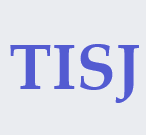Reviewer Guidelines: Difference between revisions
(Created page with "==Introduction== TISJ is committed to maintaining the highest standards of scholarly publishing by adhering to the Committee on Publication Ethics (COPE) guidelines. The role of peer reviewers is central to ensuring the integrity, quality, and relevance of the research we publish. As a reviewer for our journal, you are expected to uphold these ethical standards, offering a fair and unbiased evaluation of submitted manuscripts. ==General Responsibilities of Reviewers== A...") |
No edit summary |
||
| Line 3: | Line 3: | ||
==General Responsibilities of Reviewers== | ==General Responsibilities of Reviewers== | ||
As a peer reviewer, you are tasked with evaluating manuscripts in an unbiased, confidential, and constructive manner. Your review will contribute significantly to the editorial decision-making process and help ensure the journal publishes only the highest quality and ethically sound research. | As a peer reviewer, you are tasked with evaluating manuscripts in an unbiased, confidential, and constructive manner. Your review will contribute significantly to the editorial decision-making process and help ensure the journal publishes only the highest quality and ethically sound research. Key responsibilities include: | ||
*'''Impartial Evaluation''': Provide an unbiased and objective assessment of the manuscript, without letting personal or professional biases influence your review. | *'''Impartial Evaluation''': Provide an unbiased and objective assessment of the manuscript, without letting personal or professional biases influence your review. | ||
Revision as of 12:50, 20 January 2025
Introduction
TISJ is committed to maintaining the highest standards of scholarly publishing by adhering to the Committee on Publication Ethics (COPE) guidelines. The role of peer reviewers is central to ensuring the integrity, quality, and relevance of the research we publish. As a reviewer for our journal, you are expected to uphold these ethical standards, offering a fair and unbiased evaluation of submitted manuscripts.
General Responsibilities of Reviewers
As a peer reviewer, you are tasked with evaluating manuscripts in an unbiased, confidential, and constructive manner. Your review will contribute significantly to the editorial decision-making process and help ensure the journal publishes only the highest quality and ethically sound research. Key responsibilities include:
- Impartial Evaluation: Provide an unbiased and objective assessment of the manuscript, without letting personal or professional biases influence your review.
- Constructive Feedback: Offer constructive comments to help authors improve their work. Ensure that your feedback is respectful and focused on the manuscript’s academic content, clarity, and structure.
- Confidentiality: Maintain confidentiality throughout the review process. Do not disclose any details of the manuscript to others or use the information for personal gain.
- Timeliness: Complete your review within the timeframe set by the journal. If you are unable to meet the deadline or need an extension, inform the editorial office as soon as possible.
- Non-Conflict of Interest: Ensure that you have no conflicts of interest related to the manuscript. If you have any potential conflicts, disclose them to the editorial team immediately and recuse yourself from reviewing the manuscript.
Conflict of Interest
As a reviewer, it is essential to be free from any conflicts of interest that could undermine the integrity of your review. A conflict of interest may include, but is not limited to:
- Personal relationships: You have a personal connection with any of the authors (e.g., familial or close personal relationships).
- Professional rivalry: You are in direct competition with the authors in terms of research or funding.
- Financial interests: You stand to gain financially from the publication or rejection of the article (e.g., through funding or commercial interests).
- Academic interests: You have significant academic disputes or disagreements with the authors.
If any conflict of interest exists, or if you are uncertain whether a conflict of interest exists, you must notify the editorial office and withdraw from the review process for the manuscript in question.
